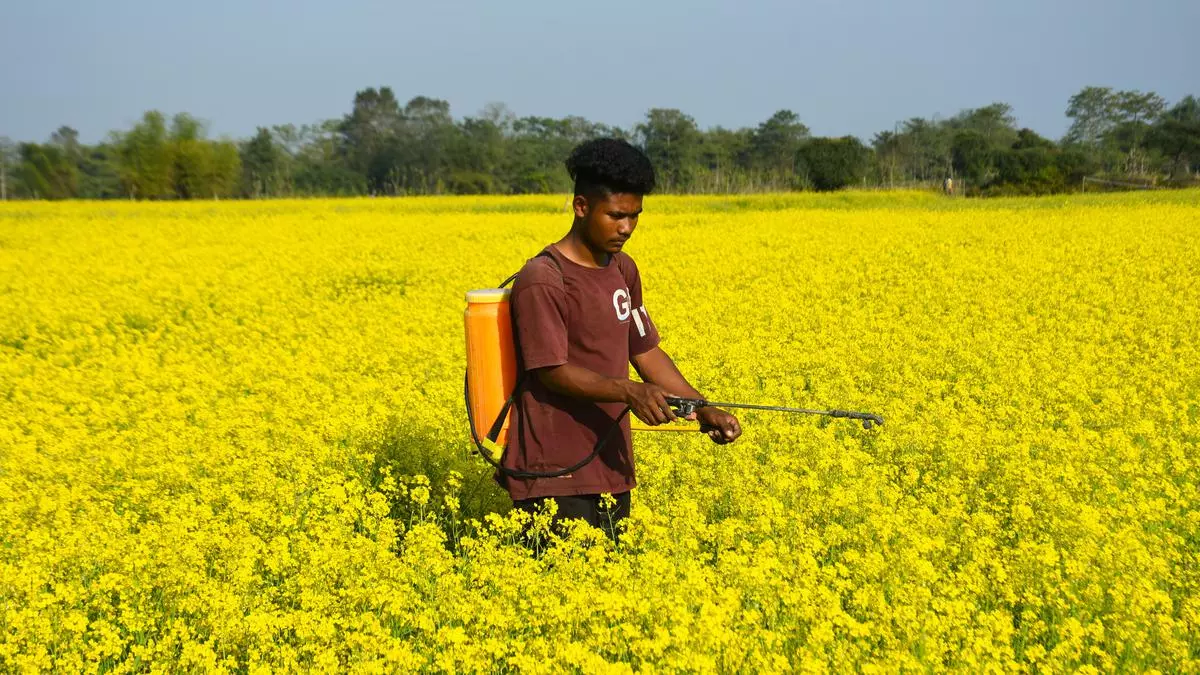Farmers are holding parts of mustard, chana crops for at least three months, says study
Mustard and gram farmers in Rajasthan and Madhya Pradesh are preferring staggered sales now, which is contrary to popular perception that farmers dump their entire produce upon harvest, according to a study conducted by New Delhi-based Arcus Policy Research and commissioned by futures trading platform NCDEX. The decision on the timing of the sales is now based on farmers’ own perception of prices and behaviour of the fellow farmers, the study said.
The survey respondents – 400 farmers — were selected on random sampling, from 32 villages in Madhya Pradesh and 82 in Rajasthan, the two top producers of gram and mustard. These two states together account for about 46 per cent of India’s gram production and about 57 per cent of mustard output, the authors said.
Farmers stored crops for at least three months post-harvest, but offloaded most of it before the next harvest, the study said and mentioned the behaviours of farmers with regard to agriculture marketing.
In case of mustard, about 34 per cent of the crop’s marketable surplus was held back by farmers in Madhya Pradesh and the share was about 70 per cent in Rajasthan. In case of gram, 69 per cent of the marketable surplus was held back by Madhya Pradesh farmers and about 77 per cent in Rajasthan, the study said.
Farmers in Rajasthan took greater risks by storing both mustard and gram crops for longer when compared to farmers in Madhya Pradesh, it said. On average, they stored gram for 102 days (more than three months after harvesting in March) in Madhya Pradesh and 114 days (close to four months post-harvest) in Rajasthan. Mustard crop was also held for about 107 days in Madhya Pradesh and 110 days in Rajasthan, the study said.
Though most of the farmers emptied their previous crop stocks before the onset of next harvest of gram/mustard, both grown in Rabi season, some medium and large farmers of gram however, found to carry forward their stocks into the next year.
Marketable surpluses are the left out crops after farmers keep certain per cent of the output for their own seed, feed, other purposes.
In case of gram, Rajasthan farmers reported higher marketable surpluses of 95 per cent compared to farmers in Madhya Pradesh who sell about 88 per cent of their production. But in case of mustard, higher marketable surpluses were reported by farmers in Madhya Pradesh (98 per cent) and in Rajasthan it is 93 per cent.
Above 95 per cent of the surveyed farmers reported storing their gram and mustard crops in self-owned storages while private storages were the second-best option. But, private storages and government godowns were mostly used by large farmers, it said.
Interestingly, while 25 per cent farmers of Madhya Pradesh, as surveyed in the study, held government policies impacted their incomes, 91 per cent in Rajasthan blamed the government for decline in gram prices.
The authors –Shweta Saini, Pulkit Khatri and Siraj Hussain — have recommended adhocness in government policy actions must be reduced. “Knee-jerk policy actions affect everyone in the value-chain of a crop that takes years to build. A rule-based evidence-backed policy making will support everyone in the value-chain. It will not only bring greater agility to the process of policy making but it will also bring predictability to others in the value-chain.” the study said.
